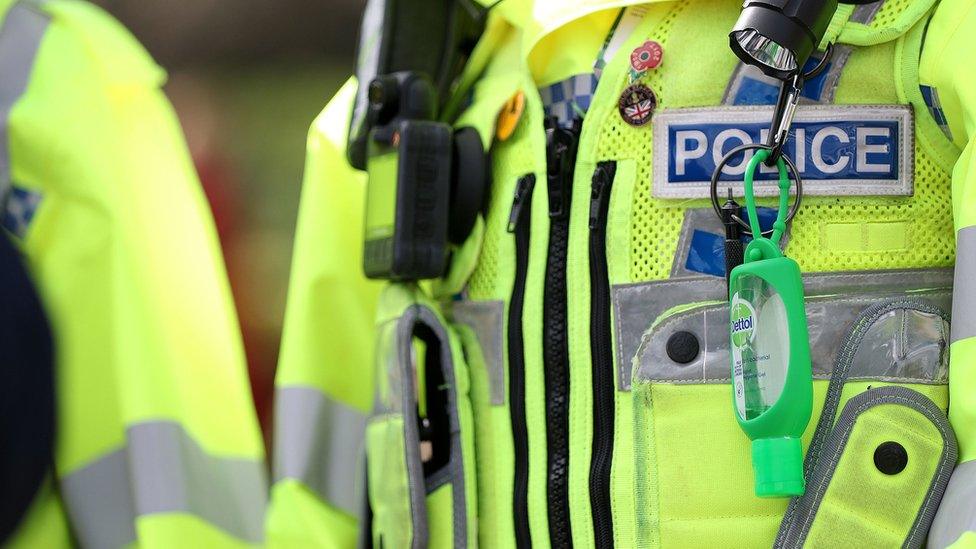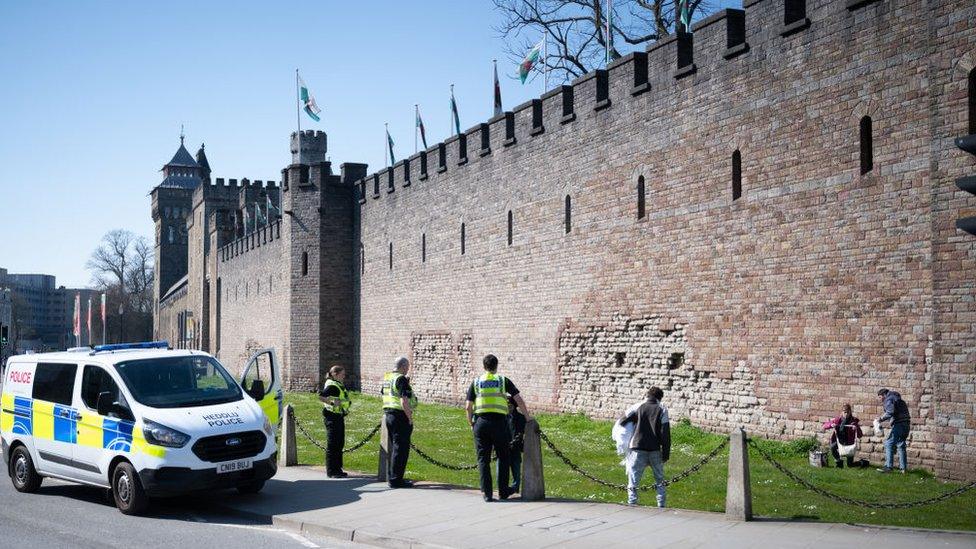Coronavirus: Fines for breaking stay-at-home law in Wales announced
- Published

People who breach stringent new rules on life brought in to tackle the coronavirus outbreak risk a £60 fine.
First Minister Mark Drakeford has signed into law regulations setting out how the measures will be enforced.
Fines rise to £120 for second and subsequent offences - and individuals ignoring the rules could risk arrest if they refuse to comply.
But while fines in England could reach as high as £960, that will not happen in Wales.
A fixed penalty notice for a first offence falls to £30 if paid within 14 days.
This week the UK's four governments announced stringent curbs on life, in a bid to contain coronavirus.
It was announced that people can only leave home for:
shopping for groceries or essentials
any medical need
travelling to and from work, if it is absolutely necessary and you cannot work from home
one form of exercise per day
No one can leave their house without a "reasonable excuse", and people cannot gather in groups of more than two in a public space, except for limited circumstances.
If people do not comply they can be directed to return home, or removed from where they are and returned home.
The Welsh and English versions of the rules were published on the same day and many aspects are similar.
But while the regulations enforcing the exercise measure in England does not stipulate the once-a-day restriction, the Welsh version does.
The Welsh rules state that retailers that are allowed to open, such as supermarkets and off-licences, should take "all reasonable measures to ensure that a distance of two metres is maintained between any person on the business premises".
This requirement is absent from the English version of the law.

The regulations do not include a clause seen in the English version which means the fixed penalty notices for the third and subsequent incidents doubles each time, to a maximum of £960.
Fines can be issued by a police constable; a police community support officer; or a person designated by the Welsh Government, a council, a national parks authority or Natural Resources Wales.
Someone who refuses to comply will be acting unlawfully, and the police may arrest them.
Individuals who do not pay the notice could be taken to court, with magistrates able to impose unlimited fines.

A SIMPLE GUIDE: What are the symptoms?
AVOIDING CONTACT: Should I self-isolate?
MAPS AND CHARTS: Visual guide to the outbreak

What are you allowed to go outside for?
The regulations, external list the reasonable excuses people can have to leave their homes.
They include:
obtaining food, medical supplies, and supplies for the essential upkeep of a household
exercise, no more than once a day, either alone or with other household members
seeking medical assistance
providing care or assistance
donating blood
travelling to work or provide voluntary services
meeting a legal obligation
accessing "critical public services"
moving house "where necessary"
avoiding injury or illness
Individuals can attend a funeral of a member of their household; of a close family member; or of a friend, if no member of the deceased's household or close family is attending.
The law also allows councils and national parks to close public paths, and enforces the closure of holiday and camping sites.
Ministers are required to review the restrictions every 21 days. They expire after six months.
- Published26 March 2020

- Published26 March 2020
